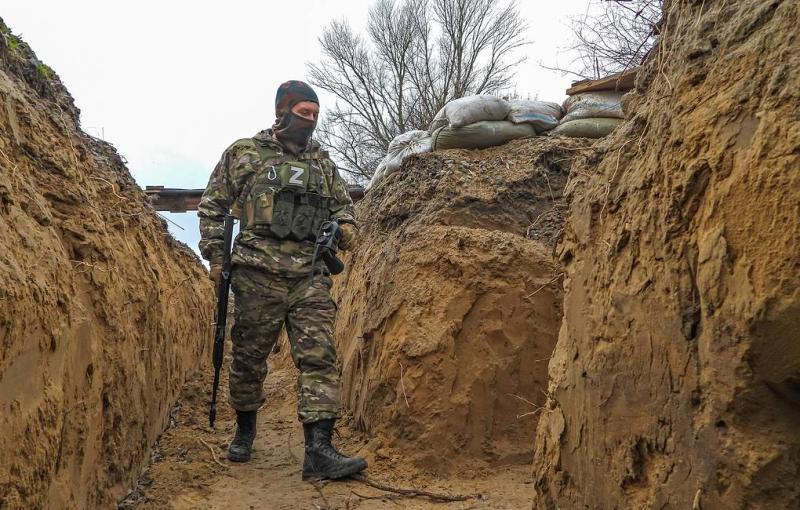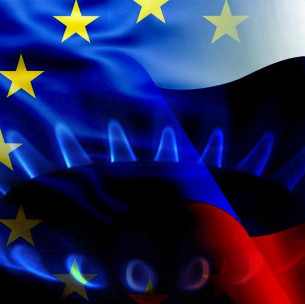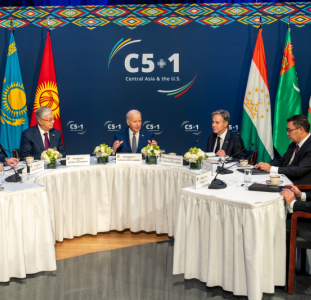
© Andrei Rubtsov/TASS
Top stories from the Russian press on Monday, January 9th, prepared by TASS
The West promises new military equipment to Ukraine, Kevin McCarthy takes the reins as House Speaker and the ruble may weaken in 2023. These stories topped Monday’s newspaper headlines across Russia.
Kommersant: Developments in Russian-Ukrainian conflict in 2023
2023 kicked off with Moscow unilaterally declaring a Christmas ceasefire in the Russian-Ukrainian conflict and the US-led West expanding military aid to Kiev. For the first time, Ukraine will receive Western personnel carriers from the United States and Germany, while France is going to send its wheeled light tanks there.
Moscow continues to assert its readiness for dialogue in order to settle the conflict, yet the West continues to distrust the sincerity of these intentions, while Turkey, just like last year, remains almost the only international player that continues to offer its services as a mediator to the conflicting sides.
Research Fellow with the Primakov IMEMO Institute of North American studies Ilya Kramnik says that the prospective deliveries from the US, Germany and France are a new step from a political standpoint which paves the way for sending relatively new armored equipment to Ukraine. "This may be followed by the deliveries of these and other vehicles, their amount will grow, and the assortment may widen. When you are already supplying armored equipment in large volumes, tanks may be added at some point. Additionally, this move may serve as an example to other NATO countries. For example, they were trying to convince Poland to send Leopard tanks which it has a lot of to Ukraine. But Warsaw asserted that it didn’t want to do this alone. However, when such deliveries begin from [the bloc’s] leading countries, then NATO’s second-and third-tier states may be more willing to join them," the expert noted.
Vedomosti: Kevin McCarthy cuts deal to become House Speaker
The US House of Representatives managed to overcome an unprecedented crisis not seen in a century, electing Republican Kevin McCarthy as its speaker after 15 rounds of voting. The situation was resolved with a deal with one of the possible conditions of cutting the US’ record-setting defense budget approved at the end of 2022 against the background of also a record-high national debt. McCarthy garnered the minimally required number of 216 votes with his main opponent, Democrat Hakeem Jeffries scoring 211 votes and six congressmen abstaining.
Hardline right-wing Republicans not only were demanding that McCarthy cut the military budget but also introduce a rule according to which only one House member may initiate a vote to vacate the speaker’s chair, says an expert with the Russian International Affairs Council Alexey Naumov. This proves that Trump supporters remain a force to be reckoned within the Republican Party. That said, McCarthy himself cannot be accused of anti-Trump attitudes. Earlier, he proposed contesting the results of the 2020 presidential election and supported Trump following the storming of the Capitol.
According to the expert, the struggle for the speaker’s gavel is a clear victory for pro-Trump camp within the GOP, including proposing a candidate for the 2024 presidential election. Cuts in military spending should definitely be expected, albeit not radical ones, and a reduction in aid to Ukraine is also possible. However, the Republicans in Congress are not strong enough to reject compromises with the Democrats and the Biden administration, which is in a similar situation, so, according to the analyst, it is expected that Biden will somewhat tone down the assertiveness of his policy and begin seeking accord with the Republicans.
The outcome of the House Speaker election basically shows that the House of Representatives is controlled by Trump and his supporters, concurs Senior Research Fellow at the Russian Academy of Sciences’ Institute for US and Canadian Studies Vladimir Vasilyev. Now, McCarthy is the de jure speaker while Trump and his inner circle serve as one de facto. Under the current conditions, McCarthy may be dismissed at any moment. Under these circumstances, the House becomes a potent pro-Trump pressure factor on the Biden administration. According to the expert, both launching an impeachment procedure and changing budget priorities in order to resolve the issue of the growing state debt are now possible. So a certain reduction in military spending and aid to Ukraine cannot be ruled out.
Izvestia: Russia’s currency may weaken slightly in 2023
In 2023, the average annual ruble rate against the dollar will amount to 70.3-73.3 with 73.6-77 to the euro and 10.5 to the yuan, according to Izvestia’s consensus forecast. The key factors weakening the national currency will be geopolitics, growing imports and the situation with oil prices. The supporting factors may be the recovery of China’s economy’s growth rates, high oil prices and retained export volumes as well as effective currency restrictions and Moscow’s de-dollarization policy.
Under the optimistic scenario, the average rate will amount to 65-70 rubles per dollar which will be facilitated by crude prices above $90, a swift recovery of China’s economy and oil and gas revenues, according to head of the analytical division of the capital markets department at Rosselkhozbank Alexander Fetisov.
Analysts think that there are more factors for the weakening of the national currency in 2023. Sanctions against Russia’s largest enterprises still remain with no lifting or relaxing in sight, says Natalya Milchakova of Freedom Finance Global. Until the end of the first half-year period, both the dollar and the euro have opportunities to strengthen over the ruble due to the growing rates by the Fed and the ECB, while the Bank of Russia’s key rate will remain at 7.5%. If oil prices do not drop below $50 per barrel and there are no new geopolitical surprises, the Central Bank will lower it no earlier than this summer.
In addition to geopolitics, it is necessary to take into account the expected lowering of prices on raw materials due to a possible global recession, stresses Mikhail Vasilyev of Sovcombank. The forecast accounts for lowered Russian exports by 14%, to $540 bln, due to a drop in world economies and the anti-Russian sanctions as well as recovered imports by 18%, to $400 bln, amid the further redirection of supply chains from the West to the East, he specified. The EU’s embargo on the imports of Russian oil products and the price cap on them to third countries from February 5, 2023, may further limit Russia’s revenues and negatively impact both the budget and the ruble.
Nezavisimaya Gazeta: Ukraine gets politicized Christmas
The end of the holiday season in Kiev was marked by various new developments including changes in the very holiday dates. Previously, Ukrainian Culture and Information Policy Minister Alexander Tkachenko wrote that in 2023, all churches in Ukraine should hold the Christmas celebration on December 25. Earlier, Ukrainian President Vladimir Zelensky ordered citizenship for 13 priests of the Ukrainian Orthodox Church (UOC) be revoked.
Christmas, according to a decision by the Ukrainian parliament, could be celebrated both on December 25 and January 7, former member of the Ukrainian Verkhovna Rada Spiridon Kilinkarov told the newspaper. Thus, the legislators tried to accommodate the interests of several groups of Ukrainian residents, not only the majority who marked Christmas on January 7 but the minority as well. "Now, it seems that the Kiev regime decided to ignore the position of the majority of the country’s residents. And their actions are taken within the framework of another severe attack on the canonical Ukrainian Orthodox Church in order to completely undermine the remaining spiritual ties with Russia and achieve a complete alienation from it," he stressed. In his opinion, the persecution of the UOC clergy such as stripping 13 of them of Ukrainian citizenship also pursues the same goal.
However, the actions of the Kiev regime against the UOC priests appear to be solely political and do not fit in with legal norms, Kilinkarov says. For instance, they were not given the right to a legal court procedure with a legal defense. "Such actions contradict both Ukraine’s Constitution and its international obligations," the former lawmaker noted.
Izvestia: What are the consequences of attacks on Serbs in Kosovo?
Incitement and protests in the partially recognized Republic of Kosovo will continue to mount. Moreover, the global community should expect another escalation between Belgrade and Pristina, according to experts polled by Izvestia. The exacerbation in the region following the New Year’s lull began over attacks on Serbs residing in Kosovo on the eve of Orthodox Christmas. While Pristina condemned the violence, the Serbs held large-scale demonstrations in Kosovo on January 8. That said, amid the flare-up, NATO rejected Belgrade’s request to deploy a limited police and army contingent to the partially recognized republic.
According to Program Coordinator at the Russian International Affairs Council Milan Lazovic, the protests by Kosovo’s Serbian residents will continue. They will come in "waves," with intermittent periods of calm, he told Izvestia.
An increased NATO presence in the region should not be expected anytime soon either because this move can aggravate the situation even further, he added. That said, another flare-up between Pristina and Belgrade is inevitable, the expert thinks.
"The situation in the region will worsen. In my opinion, it will eventually result in a conflict of small or medium intensity but this won’t happen within one-two months. During winter, the Serbs will do everything possible and will agree to various tactical compromises and more artificial agreements with Pristina unviable from the start, Yekaterina Entina, Associate Professor of Higher School of Economics and Senior Researcher at the Institute of Europe at the Russian Academy of Sciences told Izvestia.
According to her, resolving the conflict by force is practically the least desirable scenario for Belgrade. Additionally, it is not the Serbs that are stoking the situation, she pointed out. For the Serbs, it is important in principle to show that the current situation in Kosovo and their plight do not enable some final decisions of the partially recognized republic, the expert stressed.









